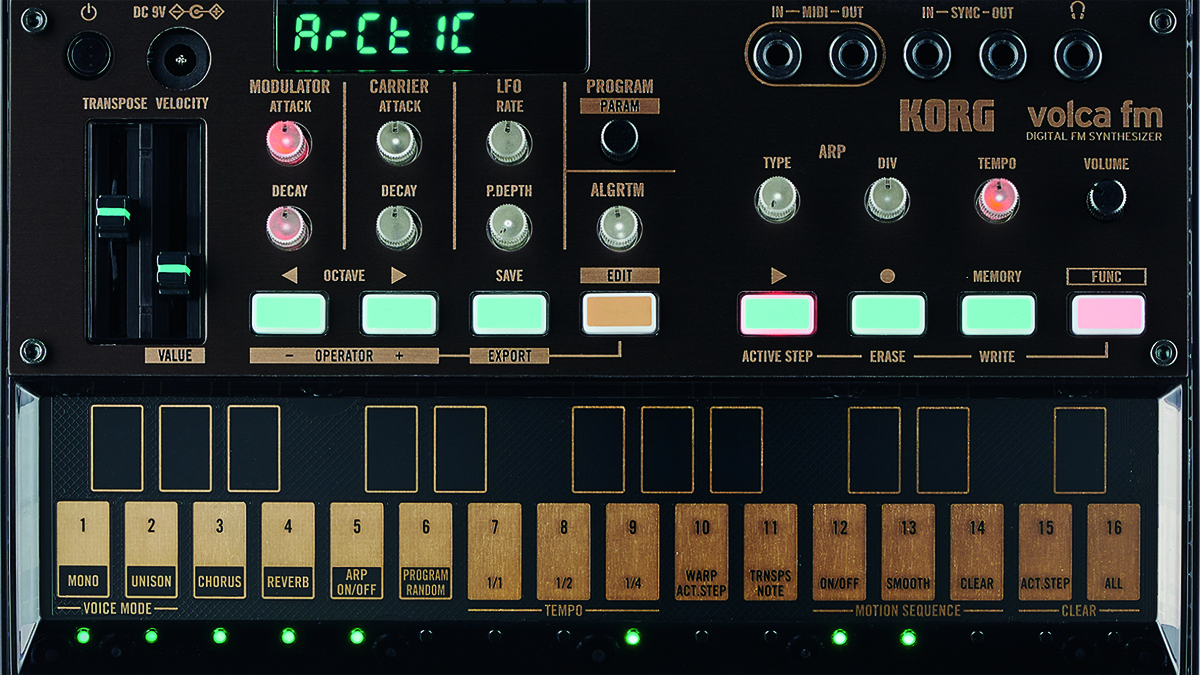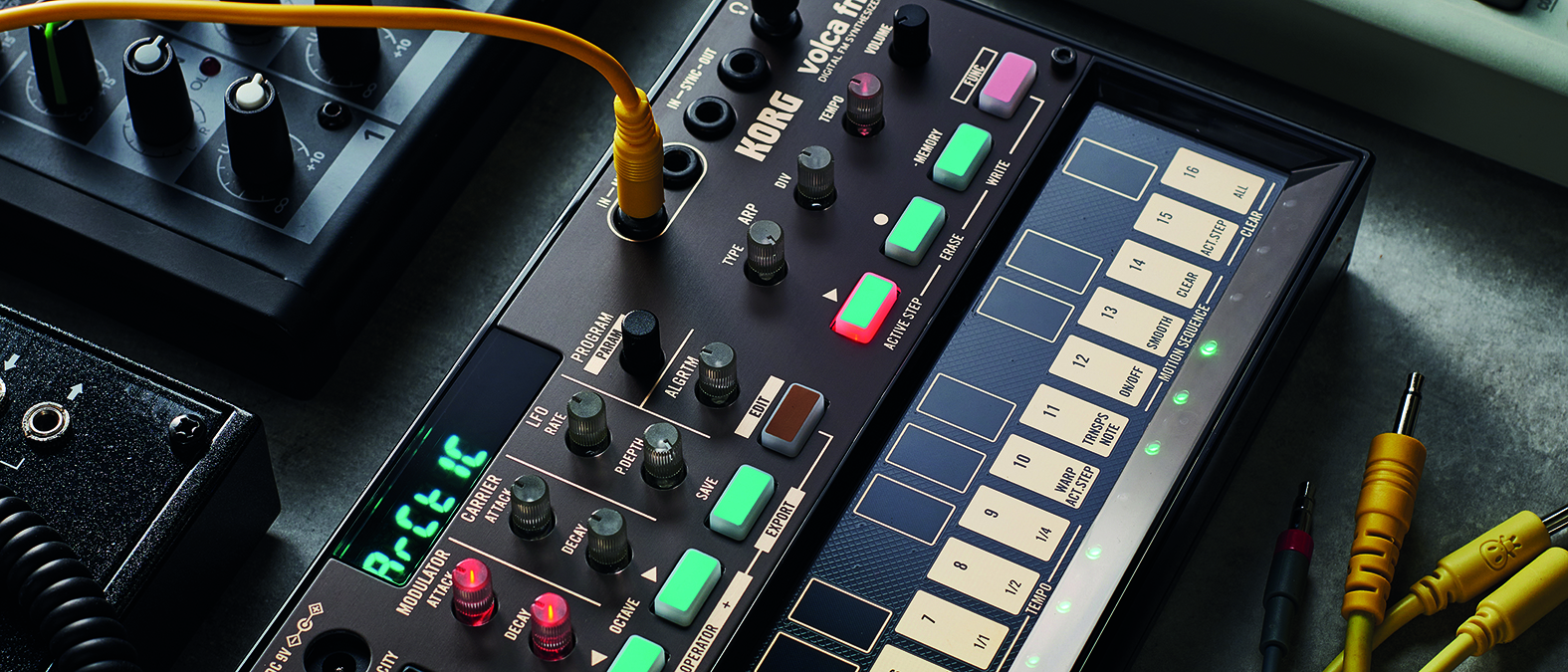MusicRadar Verdict
This is a significant improvement to what was already one of the best mini-synths on the market. At this price it’s a must-have.
Pros
- +
Double the polyphony of the original.
- +
Excellent, icy-sounding reverb.
- +
Enhanced MIDI capabilities.
Cons
- -
MIDI adapters not included in the box.
MusicRadar's got your back
Korg Volca FM2: What is it?
Korg’s DX7-inspired Volca FM is the latest in the range to be treated to a version 2 glow-up. Originally released in 2016, the original offered a cheap and compact source of retro mallets, bells, pads and dark FM basses – all tweakable thanks to the basic but user-friendly front panel controls.
In the years since, hardware FM synths have made a bit of a comeback, with the likes of Elektron’s Digitone and Korg’s own Opsix offering more complexity and better hands-on control. The Volca has remained a winner though, thanks to its low price and small footprint.

Korg Volca FM2: Performance and verdict
V2 arrives at a price £20 higher than its predecessor, but also adds a lot of extra functionality.
First and foremost is a doubling of the polyphony from three to six voices. This is the key area where the original differed from the classic Yamaha DX7, the design of which has provided the basic framework of most FM synths that have followed it.
While the original Volca had a similar six-operator, 32-algorithms design, the vastly reduced voice count meant it never sounded quite as thick as its ’80s inspiration, meaning it was better at mallets, arps or bass riffs than pads or electric piano chords.
Although six voices is still fewer than the DX7’s 16, this revised Volca does feel significantly better as a source of those polyphonic sounds.
It is significantly better as a source of polyphonic sounds
The other major addition is a new reverb, which joins the chorus from the original. As with the chorus, this is a fairly simplistic affair, with just an on/off switch and the option to adjust the overall level of the effect.
It’s an excellent fit for the synth nonetheless. The sound is cold and digital, but it suits the sound of the Volca, giving it a lovely icy, ’80s tone. As with the chorus, the reverb is stereo and can add a nice touch of extra width too.
Most of the remaining updates apply to the hardware. The FM2 ditches the single front panel MIDI input of the original in favour of mini-jack MIDI in and out ports. The MIDI output is a welcome addition, but it’s unfortunate that Korg doesn’t include the necessary MIDI adapters in the box, which even at this price point feels a bit cheap.
The FM2 also recognises velocity via the MIDI input. Velocity has a major effect over the FM sound engine. Users of the original will be familiar with how the velocity slider can be used like a filter cutoff to brighten or dull the sound. It’s great to now be able to play, sequence and modulate this parameter externally.
The synth has gained a new program randomisation function too, which will randomise elements of the existing patch to inspire new timbres.
Aside from the disappointing lack of MIDI adapters, this is an all-round excellent update. The Volca FM was already a favourite of ours and this refresh enhances it in some major ways. There are more powerful and versatile FM synths on the market, but this is an unmissable source of retro digital tones at a great price.
MusicRadar verdict: This is a significant improvement to what was already one of the best mini-synths on the market. At this price it’s a must-have.
Korg Volca FM2: Hands-on demos
Korg
loopop
Red Means Recording
Sweetwater
Korg Volca FM2: Specifications
- KEY FEATURES: 6-voice FM synthesiser. 6-operator, 32-algorithm engine based on the Yamaha DX7. 16-step sequencer with active step mode and arpeggiator.
- POWER: 6 AA batteries or main adapter (sold separately).
- CONTACT: Korg
I'm the Managing Editor of Music Technology at MusicRadar and former Editor-in-Chief of Future Music, Computer Music and Electronic Musician. I've been messing around with music tech in various forms for over two decades. I've also spent the last 10 years forgetting how to play guitar. Find me in the chillout room at raves complaining that it's past my bedtime.
“Excels at unique modulated timbres, atonal drones and microtonal sequences that reinvent themselves each time you dare to touch the synth”: Soma Laboratories Lyra-4 review
“I used everything I knew about music”: How Green Day exceeded expectations with their most ambitious song
YouTube just added AI tools that makes musicians, library music and video editors redundant










